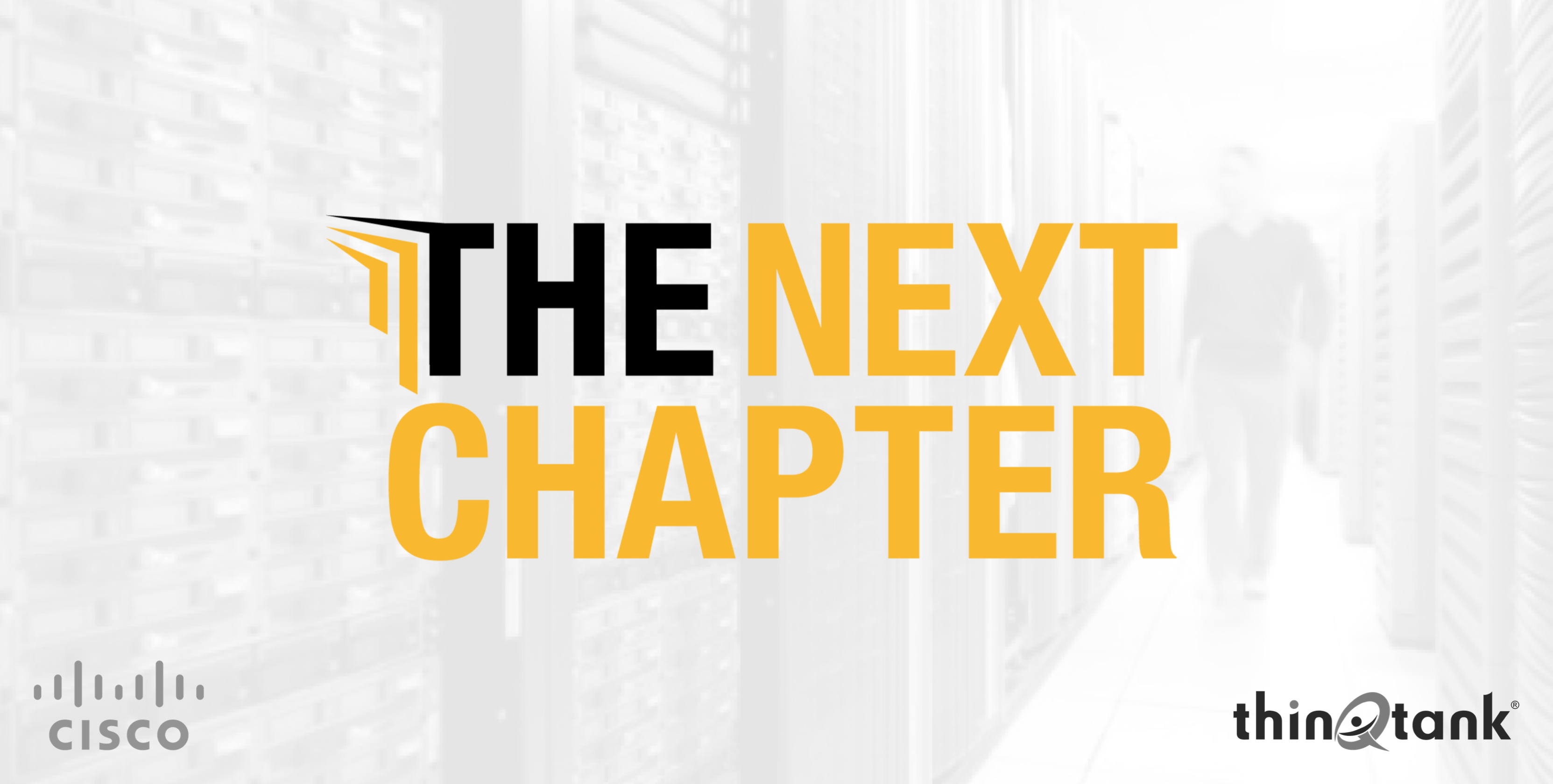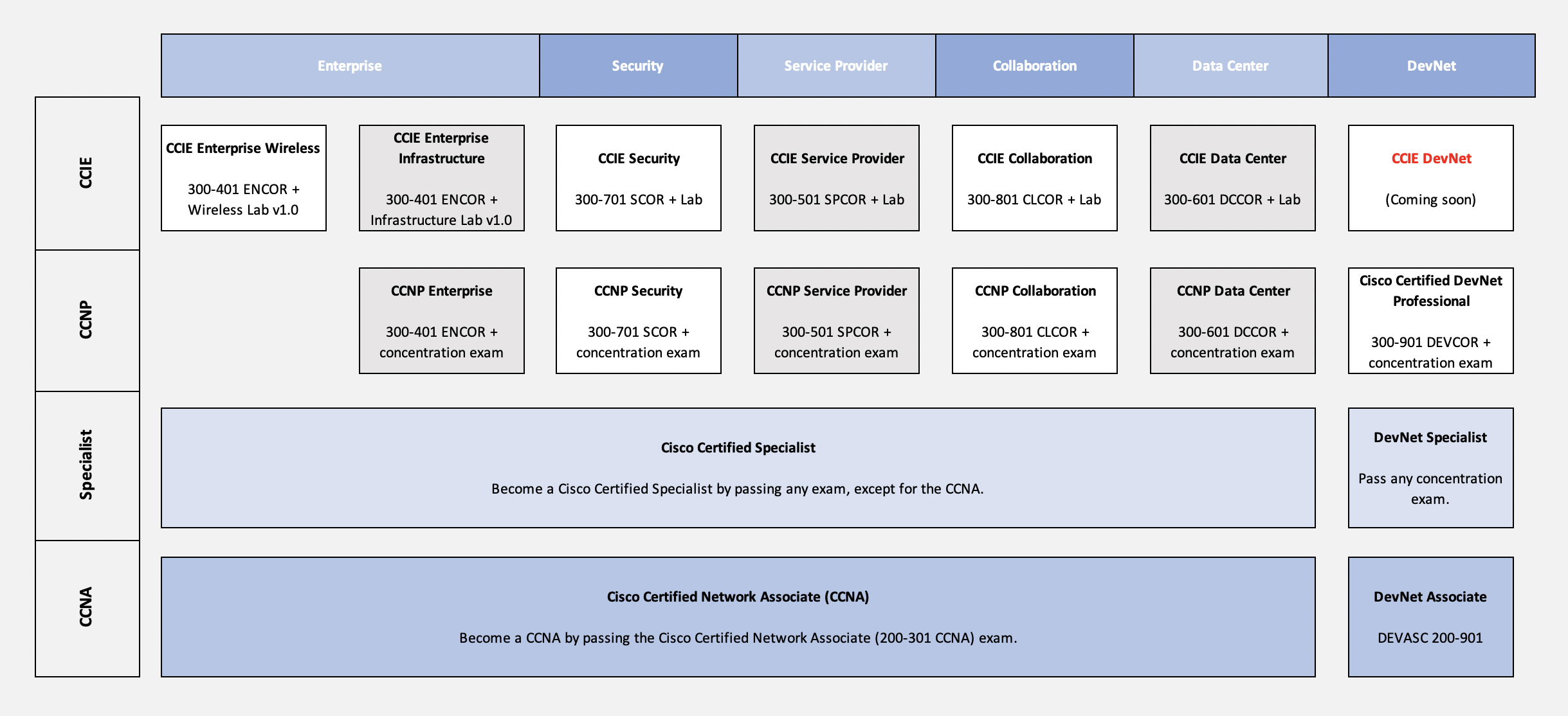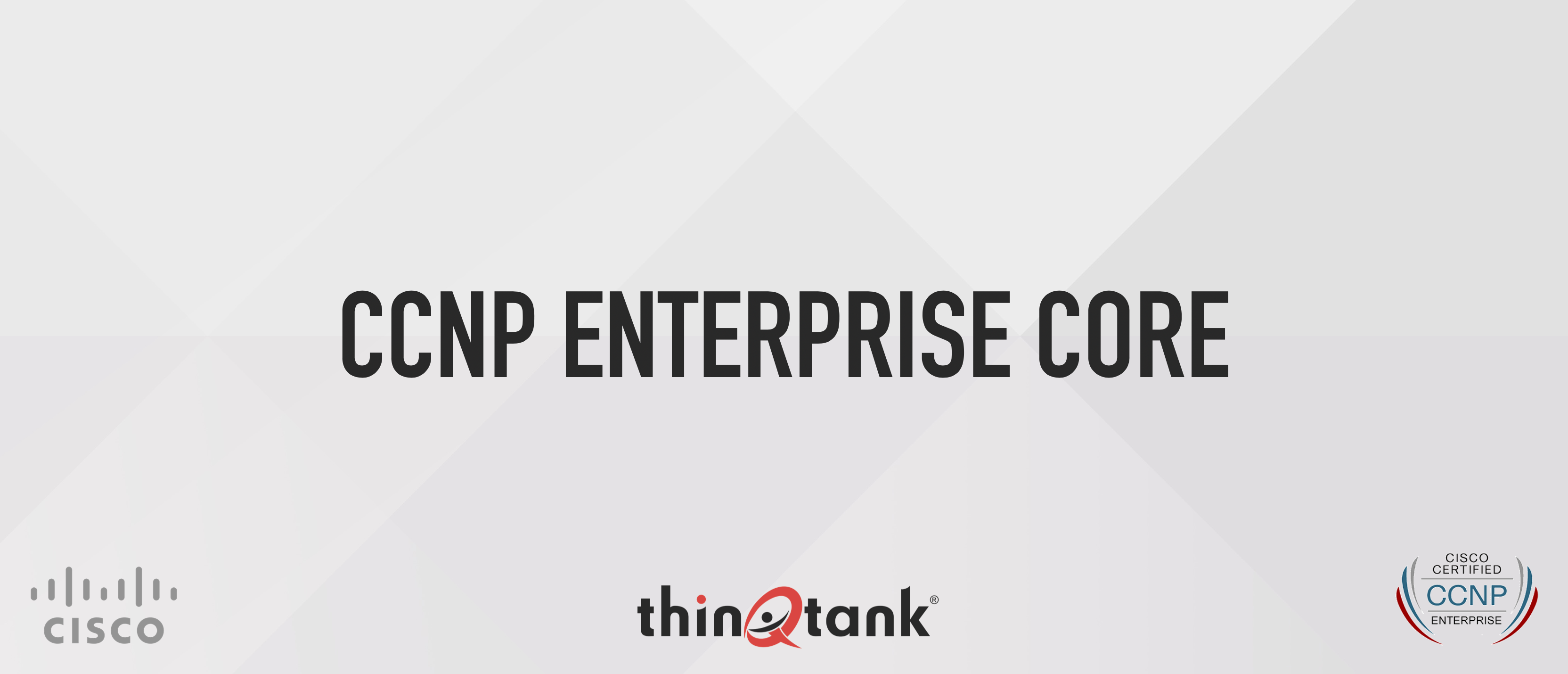The Next Chapter For Cisco
The Cisco Certpocalypse will be arriving on Monday February 24, 2020. This is the day that Cisco’s new certification structure will officially be in place. February 23, 2020 is the last day to take any of the current exams. The changes will expand well beyond the CCNA and are a total revamp of their entire certification structure.
Designed to prepare professionals for associate-level IT job roles, the new CCNA will validate a broad range of knowledge and skills. The exam covers networking and security fundamentals, as well as automation and programmability.
And yes, you only have to take one exam, the Cisco Certified Network Associate (200-301 CCNA), to earn the new CCNA! Previously, candidates typically had to take multiple exams to earn CCNA certification.
While there are no prerequisites for the 200-301 exam, Cisco recommends at least one year experience implementing and administering Cisco solutions, knowledge of basic IP addressing, and a solid understanding of networking basics.
The new CCNA will replace the following certifications: CCNA Cloud, CCNA Collaboration, CCNA Data Center, CCDA, CCNA Industrial, CCNA Routing and Switching, CCNA Security, CCNA Service Provider, and CCNA Wireless.
Here’s what the new Cisco Certification Path will look like:
![]()
In the chart above, you’ll also notice a big change to the CCNP as well. Most CCNP certifications will also be retiring. Right now, networking professionals start a specialization track at the CCNA level. For example, CCNA Security leads to CCNP Security. That’s all about to change. After February 24, 2020, the one CCNA (200-301 CCNA) will cover networking basics and then you specialize at the CCNP level.
There are no formal prerequisites for the CCNP exams, which is another big change. But structurally they remain about the same as before. You are still required to pass a core exam and one of three to eight concentration exams to earn your CCNP.
Here’s the complete list of the CCNPs:
CCNP Enterprise
CCNP Security
CCNP Service Provider
CCNP Collaboration
CCNP Data Center
Cisco Certified DevNet Professional
Passing any of these concentration exams will also earn you the Cisco Certified Specialist title. To become a Cisco Certified Specialist, you can take any exam, except the CCNA (which would make you a CCNA, not a specialist).
![]()
Cisco couldn’t make a change to the entire foundation of their certification structure without altering the top, too. That means, yes, there are changes to the CCIE as well. There are now six CCIE tracks, and they no longer have dedicated CCIE written exams. Instead, you must pass the CCNP core exam and then take the 8-hour lab.
For example, to earn the CCIE Security you’d have to pass the CCNP Security core exam (SCOR 300-701) and then sit for the 8-hour lab, CCIE Security v6.0. That’s consistent across all the new CCIEs with the exception of CCIE Enterprise.
In the case of the Enterprise track, you have two options: CCIE Enterprise Wireless and CCIE Enterprise Infrastructure. Both of these tracks adopt the CCNP Enterprise exam (ENCOR 300-401) as their written exam, and then diverge at the lab requirement. They each have a dedicated lab requirement specific to the track: CCIE Enterprise Wireless v1.0 and CCIE Enterprise Infrastructure v1.0.
Here’s the complete list of the CCIEs:
CCIE Enterprise Wireless
CCIE Enterprise Infrastructure
CCIE Security
CCIE Service Provider
CCIE Collaboration
CCIE Data Center
![]()
Lastly, Cisco launched a new certification track — DevNet. The exam (DEVASC 200-901) goes live February 2020. The DevNet track will combine programming (primarily with Python) and infrastructure. There will be four levels to the DevNet track:
Cisco Certified DevNet Associate (CCNA-level)
Cisco Certified DevNet Specialist
Cisco Certified DevNet Professional (CCNP-level)
Cisco Certified DevNet Expert (CCIE-level)
These tracks follow the same conventions as the other five tracks. You can either take the associate-level core exam to get certified at the CCNA level, pass one exam to become a Specialist, or take two exams to earn the professional-level certification.
![]()
thinQtank® Learning is offering a unique eight-day training camp comprised of five days of instructor-led instruction and three days of self-study that teaches learners how to install, operate, configure, and verify basic IPv4 and IPv6 networks, including configuring networking components, switches, routers, and wireless LAN controllers; managing network devices and identifying basic security threats. As with all of our Cisco Training Experiences – exams are delivered in the classroom.
When: March 16 – 20, 2020
Where: Stafford VA and Live Online
thinQtank® Learning is offering a unique nine-day training camp comprised of five days of instructor-led learning for Implementing and Operating Enterprise Network Core Technologies (ENCORE) and four days of instructor-led learning for Implementing Cisco Enterprise Advanced Routing and Services (ANARSI). As with all of our Cisco Training Experiences – exams are delivered in the classroom.
When: March 31 – April 8, 2020
Where: Sterling VA and Live Online





